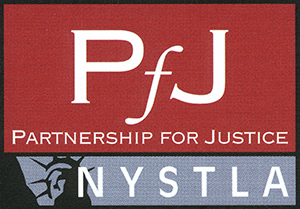Cardiovascular Disease, Heart Surgery and Wrongful Death
Posted on October 14th, 2013 by Oddo & Babat, P.C.
Cardiovascular disease is the leading cause of death for New York citizens and the worldwide population. The World Health Organization (WHO) reports that in 2008, 17.3 million people died due to CVD, representing 30% of all global deaths. According to the New York State Department of Health’s comprehensive report, The Burden of Cardiovascular Disease in New York, approximately 40% of NYS deaths in 2008 were caused by CVD.
Often called “heart disease,” CVD includes a number of conditions that affect the heart and circulatory system. Common types are:
- Coronary Heart Disease: Build-up of fatty deposits on blood vessel linings
- Congenital Heart Disease: Malformations of heart structure existing at birth
- Congestive Heart Failure: Failure to pump enough blood throughout the body
- Pulmonary Heart Disease: Slowed or blocked blood flow into the lungs
- Rheumatic Heart Disease: Complication of untreated strep throat / rheumatic fever
While the Center for Disease Control and Prevention projects heart disease will remain the leading cause of death globally for the next 20 years, more people are living with CVD than ever before due in part to heighted awareness, medical improvements and less invasive procedures. For some, illness and death due to CVD can be prevented simply by a healthy, conscientious lifestyle. Known and modifiable risk factors for cardiovascular disease include tobacco use, physical inactivity, poor nutrition, obesity, hypertension, high blood cholesterol and diabetes.
In addition to preventative behavior by individuals, proper pre-care by a doctor is necessary to detect abnormalities in the heart. If a condition is left undiagnosed, it may worsen over time without treatment and can lead to heart attack, stroke or other serious illness and injury. Signs of heart disease medical professionals often mistake for more minor conditions include trouble breathing, chest pain, nausea, dizziness, high blood pressure and pain in the left arm. Once a heart condition is detected, operations may be necessary. As with any surgery, there are risks involved in cardiac operations.
Complications can arise due to a number of factors, including:
- Abnormal heart rhythms
- Reactions to anesthesia
- Tissue damage
- Severing of the aortic valve
- Hematomas
- Heart valve damage or dysfunction
- Neurological complications
- Damage to surrounding blood vessels
- Infection, excessive bleeding or blood clotting
- Inadequate surgical techniques or inexperience of the surgeon
While cardiac surgeons are among the most highly trained specialists in the medical industry, human error or bad judgment can be a factor in the success of surgery and recovery. Miscalculations can be life-threatening and there are cases when medical professionals do not provide proper care, increasing the risk of further illness, injury or even death. After an operation, close monitoring, medication adjustments and progress evaluations are vital factors in the recovery of a cardiovascular surgery patient. It is important for doctors to notify the patient of any ongoing risks they may have, particularly if additional treatments are needed or they lead a physically demanding lifestyle.
Cardiovascular disease treatments and surgery can save lives but when surgeons and their staff make errors or exercise inadequate medical judgment, it can also end up causing serious harm and in some cases, wrongful death. Evaluating whether medical negligence is involved – whether pre-, during, or post operation – requires the expertise of experienced lawyers. An individual or family that has suffered by inadequate medical care may choose to pursue legal action against the medical professionals involved.
Oddo & Babat specializes in Medical Malpractice and Medical Negligence claims. Contact us today or call or call us at 212-642-0950 to arrange an appointment with one of our experienced New York attorneys.


 I consulted with David the first time a couple of years ago on a serious matter that affected a very close member of my family. Not expecting a good experience from this serious situation coupled with an attorney consultation, the entire thing surprised me as it was pleasant, professional, and completely successful. We found him clear, direct, generous and extremely knowledgeable throughout the process. I give my very strongest recommendation
I consulted with David the first time a couple of years ago on a serious matter that affected a very close member of my family. Not expecting a good experience from this serious situation coupled with an attorney consultation, the entire thing surprised me as it was pleasant, professional, and completely successful. We found him clear, direct, generous and extremely knowledgeable throughout the process. I give my very strongest recommendation








